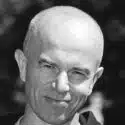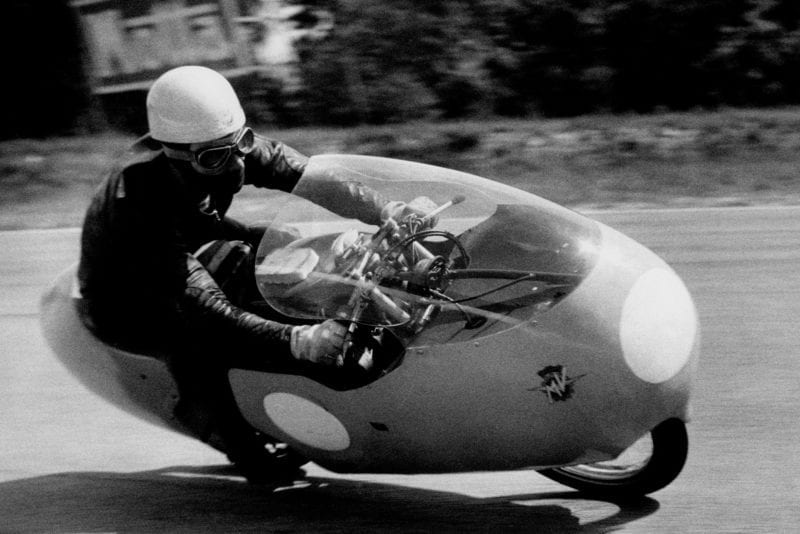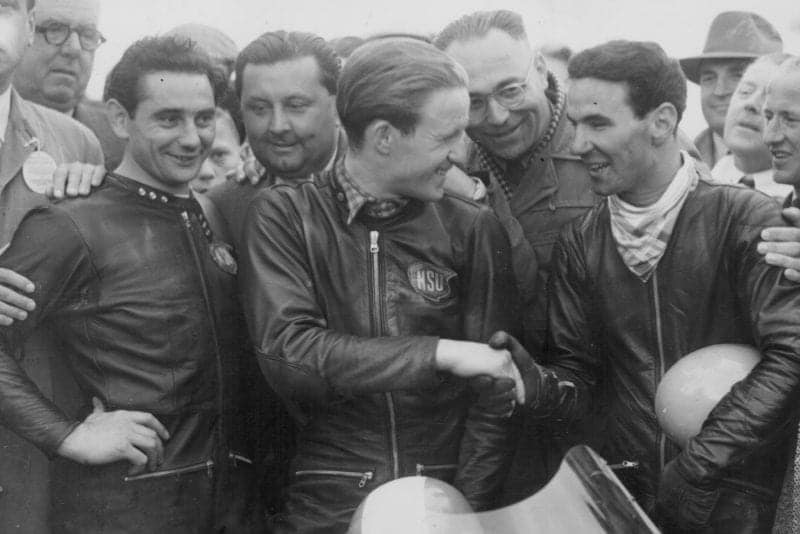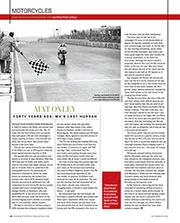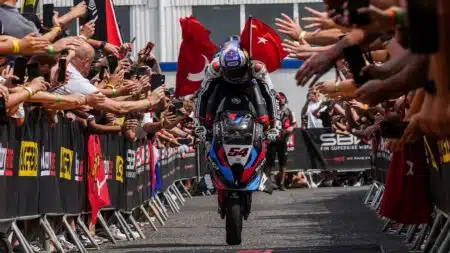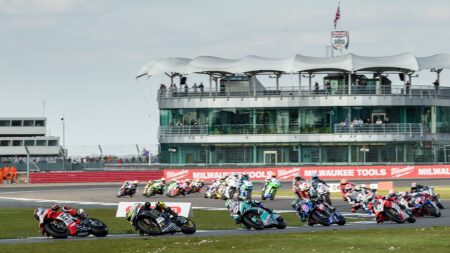In 1952 he lost the title to MV Agusta’s first world champion Cecil Sandford, so in 1953 he rejoined Count Domenico Agusta’s team and stayed there for the rest of his career. In 1955 he made the Count a very happy man (not an easy thing to do) when he became MV’s first Italian world champion, in the 125 class. The next summer he added MV’s first 250 world title to another 125 crown, giving the Count the first of many title doubles.
Despite Ubbiali’s domination of the smaller categories, Count Agusta never promoted him to the 350cc or 500cc classes, because in those days riders were usually allocated to categories according to their size, and Ubbiali wasn’t a big man.
In 1959 grand prix technology changed once again, when Ubbiali lost the Italian GP at Monza by a fraction of a second to East German Ernst Degner, riding a two-stroke MZ. This was the first 125 GP victory by a two-stroke, thanks to the genius of MZ engineer Walter Kaaden. From then on the four-stroke’s days as a GP force were numbered.
Count Agusta saw the writing on the wall, because not only were two-strokes getting faster and faster, his company and his considerable ego were also threatened by an entirely new force in GP racing: the Japanese factories. At the end of the 1960 season, during which Ubbiali took his third 125/250 title double for MV, the Count withdrew from the smaller classes, where the two-strokes and Honda’s multi-cylinder four-strokes were taking over.
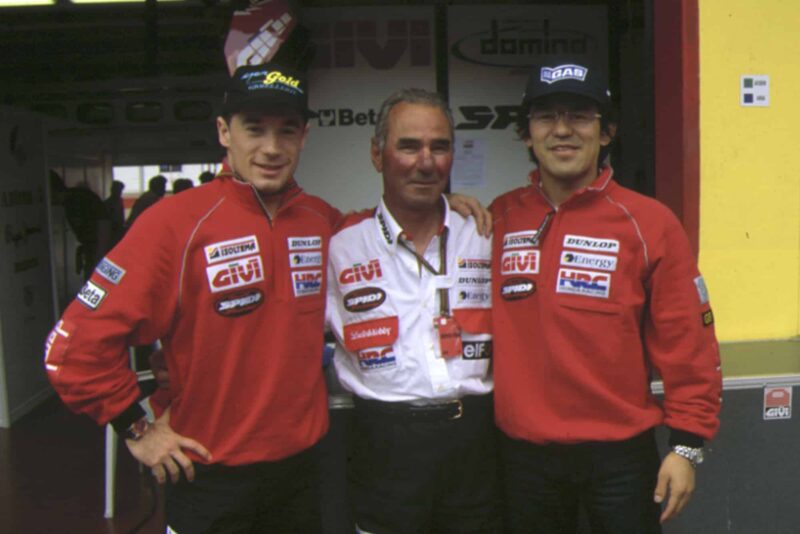
Ubbiali with LCR Honda riders Cecchinello (left) and Nobby Ueda in 2000
Ubbiali, recently married and broken-hearted by the death of his brother Maurizio, took MV’s withdrawal as the signal to retire.
He remained involved in racing, encouraging a very young Agostini – they both hailed from the city of Bergamo – in the early stages of Ago’s career and helping him sign with MV Agusta in 1964.
In 1998 Ubbiali once again became a GP regular when he joined Lucio Cecchinello’s team, which fielded Cecchinello and Nobby Ueda in the 125 world championship. LCR was backed by Italian accessory brand Givi, whose founder Giuseppe Visenzi was good friends with Ubbiali and appointed him as brand ambassador to the team.
“He could learn tracks quite quickly and then he worked hard at being precise with the brakes, with the throttle, with his lines”
“At this time no team had spotters out on the track, but Carlo became like a spotter for us, although he was from such a different era that we didn’t think he could give us any useful advice,” recalls Cecchinello. “In reality he was often very helpful, because he would watch around the track and then come back to the garage, where he would tell us, ‘Kazuto Sakata is a bit tighter into Turn Four’, or ‘Tomomi Manako can hold second gear all the way between Turn Six and Seven, so maybe you should raise your gearing’.
“Carlo told me many great stories, like when he travelled all the way from Bergamo to Wales by train, when he was only 19 and couldn’t speak a word of English! I was amazed by that.”
“He said his strong point was that he was always very, very precise. He could learn tracks quite quickly and then he worked hard at being precise with the brakes, with the throttle, with his lines, at a time when the tracks and the bikes made it very easy to make mistakes. Carlo was very shy, quiet and reserved. He was also tough, but always very straight in his dealings with people.”
Ubbiali passed away on Tuesday, after contracting Covid-19.
